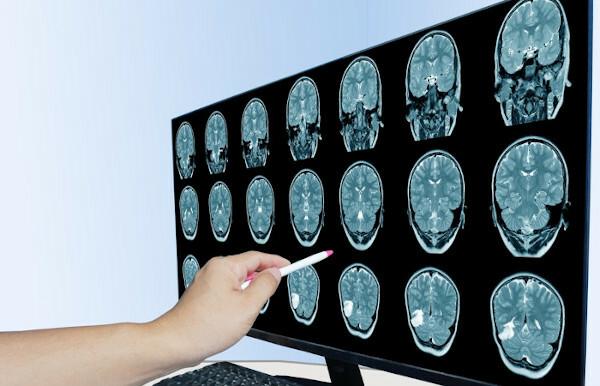Aphasia is a language disorder associated with brain damage. It is not a disease, but the manifestation of some other health problem. Its main cause is stroke, however, tumors, trauma and infections are examples of causes of the condition.
this disorder can compromise an individual's language in different ways. The person with aphasia may have, for example, difficulty finding a word to communicate, inability to read and not understanding what is said by another person. Aphasia negatively affects an individual's quality of life as it impairs their communication.
Read too: Cerebral aneurysm — abnormal dilatation of an intracranial artery
aphasia summary
Aphasia is the impairment of an individual's language.
It occurs after some brain damage, the most common cause being a stroke.
It can compromise the individual's language at different levels, ranging from milder cases, in which the person forgets specific words, even more serious cases, in which the individual is not able to elaborate phrases.
It can be divided into fluent or non-fluent.
Therapies can be performed for language rehabilitation.
Do not stop now... There's more after the ad ;)
What is aphasia?
Aphasia is a language disorder and occurs after brain damage. It is not a disease itself, but a manifestation of another problem, such as a stroke. Usually, the disorder is perceived by the patient himself or by people close to him, who observe, for example, that some phrases said by the individual do not make sense or are incomplete or that the person is having difficulty understanding what is being said to Is it over there.
according to material Talking about aphasia: family guide, from the Brazilian Society of Speech Therapy, in milder cases, a person with aphasia may have, for example, difficulty remembering a specific word during a conversation or understanding a popular saying. In more severe cases, the person may become unable to read, write or compose a sentence to communicate. This difficulty directly affects the individual's life in a negative way, as it makes him dependent on others for his communication and socializing with other people.
It is important to point out that in aphasia there are mainly changes in language, however, the individual can also have difficulty with memory, reasoning, problem solving and performing certain tasks. tasks. However, we must understand that it is not an intellectual or psychiatric disorder.
Read too: The relationship of fonoaudiology with the Theaccident vcerebral ascular (stroke)
types of aphasia
Aphasia can be classified into fluent or not fluent. according to material Talking about aphasia: family guide, from the Brazilian Society of Speech-Language Pathology and Audiology, in fluent aphasias, “the individual is capable of producing chained speech. The sentence structure is relatively intact but there are gaps in the meanings”. In the non-fluent ones, in turn, according to the publication, “the production of speech is paused and with effort. Grammar is impaired, but word content may be preserved.”
As each individual is unique and is exposed to different situations that directly influence their language, it is often difficult to classify the type of aphasia presented.
primary progressive aphasia
Despite being called aphasia, primary progressive aphasia is not just a language disorder, but a dementia process, considered more aggressive than the Alzheimer's. In this case, language changes are the first symptoms.
causes of aphasia

the aphasia occurs as a result of an injury to the brain, the most common cause being stroke in the left hemisphere. In addition to strokes, degenerative diseases, metabolic diseases, trauma, tumors, aneurysms, brain infections and some types of dementia can lead to aphasia.
this disorder can occur in individuals of all ages, but it is more common in elderly people. The higher frequency in this population is associated with an increased risk of stroke and other diseases.
aphasia treatment
Aphasia is a problem that negatively affects the ability to communicate. Through knowledge of the real needs and degree of commitment of the individual, a professional must indicate the best therapy for each case.
Some authors claim that better recovery is observed when interventions are performed in the first month after the injury. Therefore, the therapies should be carried out as soon as the problem is diagnosed.
Different therapeutic approaches can be adopted to improve the individual's communication. Some of these approaches aim to improve oral comprehension and expression and develop the patient's reading and writing skills. In other situations, therapy focuses on favoring dialogue through different means, such as the use of gestures, thus ensuring communication in everyday life. The commitment of the family and all those close to them is important for the rehabilitation process to be successful.
By Vanessa Sardinha dos Santos
Biology teacher


